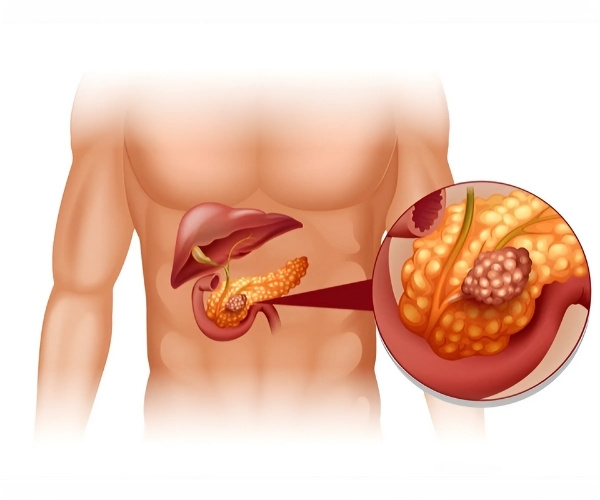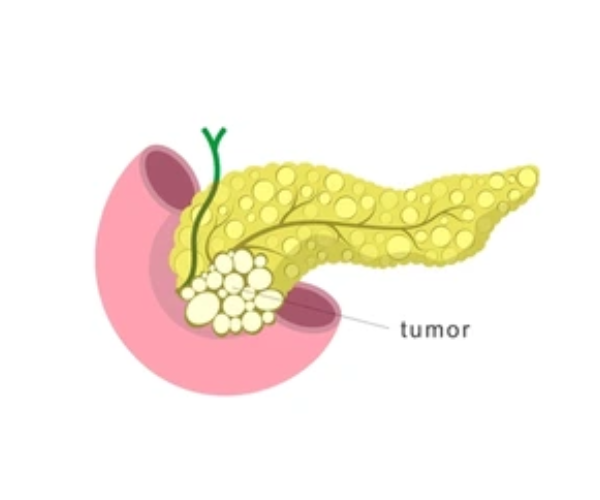Dr. Nitin Singhal
Pancreatic Cancer Treatment In Ahmedabad, India
Pancreatic Cancer Surgeon In Ahmedabad
Dr. Nitin Singhal is a skilled pancreatic cancer treatment in Ahmedabad, offering expert surgical care for complex pancreatic tumors using advanced and minimally invasive techniques. His concentration on early diagnosis of cancer, preservation of organs, and precision surgery gives patients the best possible efforts in his hands. His multidisciplinary approach ensures comprehensive support throughout the treatment journey.
Pancreatic Cancer Surgeon In Ahmedabad
Dr. Nitin Singhal is a skilled pancreatic cancer surgeon in Ahmedabad, offering expert surgical care for complex pancreatic tumors using advanced and minimally invasive techniques. His concentration on early diagnosis of cancer, preservation of organs, and precision surgery gives patients the best possible efforts in his hands. His multidisciplinary approach ensures comprehensive support throughout the treatment journey.
What is Pancreas Cancer?
Pancreatic cancer begins in the tissues of the pancreas, an important organ located behind the stomach that aids in digestion and blood sugar regulation. It is often referred to as a “silent killer” because the early stages rarely produce symptoms, making early diagnosis difficult.
Pancreatic cancer is aggressive, but advances in robotic surgery, targeted therapies, and early detection are giving patients new hope.

Your Guide to Pancreas Cancer
The choice of treatment depends on the stage and location of the tumor:
-Robotic Pancreatectomy (minimally invasive pancreas surgery)
-Whipple Surgery (for tumors in the pancreas head)
-Chemotherapy and Radiation Therapy
-Targeted Therapy and Immunotherapy (for advanced cases)
-Palliative Care (to relieve symptoms in late stages)
Symptoms usually appear only after the cancer has advanced:
-Jaundice (yellowing of skin and eyes)
-Pain in the upper abdomen or back
-Loss of appetite and unexplained weight loss
-Fatigue and weakness
-Nausea and vomiting
-Dark urine and pale stools
-New-onset diabetes or worsening existing diabetes
The main treatment for colon cancer is surgery.
Treatments used for colorectal cancer may include:
-Some combination of surgery
-Radiation Therapy
-Chemotherapy
-Targeted Therapy
Exocrine Tumors (most common)
-Begin in the ducts that carry pancreatic juices.
-Pancreatic Ductal Adenocarcinoma (PDAC).
Neuroendocrine Tumors (less common)
-Begin in hormone-producing cells.
-Usually slower growing, with better prognosis.
What is Robotic Surgery for Pancreas Cancer?
Robotic-assisted surgery is a good option for many cancer patients. Robotic Surgery is a type of minimally invasive surgery.
Robotic-assisted surgery is transforming pancreatic cancer treatment:
-Enhanced precision around vital blood vessels
-Smaller incisions and faster recovery
-Less blood loss and fewer complications
-Shorter hospital stays
Robotic Whipple procedure is now considered an excellent option in selected early-stage pancreatic tumors.

Why Robotic Surgery?

Faster Recovery Time

Low Risk of Infection

Lesser Scars

Less Discomfort After Surgery

Shorter Hospital Stay

Speedier Return to Daily Life
Why Dr. Nitin Singhal for Robotic Cancer Surgery?
Dr. Nitin Singhal brings deep knowledge and trust to every patient’s cancer journey. He is know as one of the best Robotic Surgeon for Cancer Treatment in India.
Early diagnosis, precise treatment, and establishing trust at every stage are his top priorities. He makes sure that every patient gets individualised attention and assistance during their course of treatment.
When it comes to Robotic Cancer Treatment, Dr. Nitin Singhal is committed to providing advanced care with empathy and excellence.

Commonly Asked Questions
The life expectancy for someone with pancreatic cancer varies significantly, but on average, it’s about 12 months.
While anyone can get pancreatic cancer, there are certain risk factors to be aware of. Most pancreatic cancer is diagnosed after age 65.
Yes, pancreatic cancer can be painful, particularly in its later stages.
Discover How Robotic Cancer Surgery can Change Your Recovery Journey.
